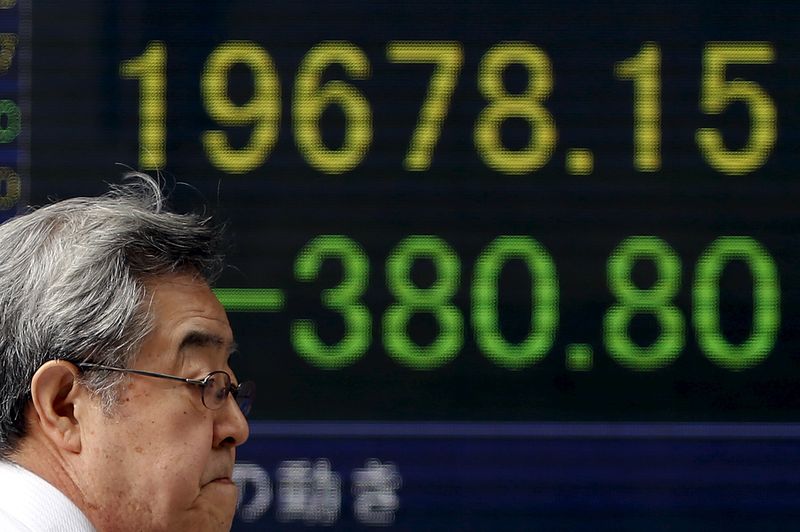This post was originally published on this site
https://i-invdn-com.akamaized.net/news/LYNXMPEB4C07I_M.jpg
Investing.com – Asia Pacific stocks were down on Thursday morning after a bumpy session for U.S. markets overnight and as investors track the progress of the latest U.S. stimulus measures. Mounting U.S.-China tensions also added to investor caution.
China’s Shanghai Composite fell 0.66% by 11 PM ET (3 AM GMT) and the Shenzhen Component slid 1.27%. Tensions between China and the U.S. rose after six more Chinese publications were designated as “foreign missions”, or media outlets controlled by Beijing, by Secretary of State Michael Pompeo during a Wednesday briefing. The six latest additions include the Economic Daily, serving as a window into Beijing’s economic views, and the Jiefang Daily, the official publication of the Shanghai Communist Party Committee. The remaining four publications are the lesser-known Yicai Global, Xinmin Evening News, Social Sciences in China Press, and the Beijing Review publications.
Hong Kong’s Hang Seng Index was down 0.25%, in the wake of the city’s Cathay Pacific Airways (HK:0293) eliminating 8,500 positions and ceasing operations of sister airline Cathay Dragon on Wednesday.
Japan’s Nikkei 225 fell 0.75% and South Korea’s KOSPI fell 0.70%.
In Australia, the ASX 200 was down 0.56%.
The U.S. market closed lower as hopes dim that the stimulus measures will be passed by Congress ahead of the Nov. 3 presidential election. Despite President Donald Trump and House of Representatives Speaker Nancy Pelosi raising those hopes, stiff Senate Republican opposition to the price tag remains a hurdle to be overcome.
Senate majority leader Mitch McConnell “might not mind doing it after the election,” Pelosi said, even as she and Treasury Secretary Steven Mnuchin continue talks later in the day and Chief of Staff Mark Meadows said that the White House seeks to reach a consensus within the next 48 hours.
However, some investors remain unconvinced.
“We still think that this deal will remain elusive in the sense that this amount that we are talking about, $1.88 trillion, that’s about 9% of GDP, and 2.2 trillion which is Speaker Pelosi’s package, is even higher at around 10% of GDP … even if both sides do manage to reach an agreement, given the tight deadline ahead of the election it’s unlikely that something like that would be able to go through the Senate smoothly,” Union Bancaire Privee chief Asia investment strategist Anthony Chan told Reuters.
Some investors braced for a tough day ahead.
“We’re looking at a fairly rough day for regional investors, we had a volatile session in the U.S. … futures markets are reflecting a worse day here. We’ll see losses across the region,” CMC Markets chief markets strategist Michael McCarthy told Reuters.
Meanwhile, Trump and Democrat candidate Joe Biden will meet for the final presidential debate in Nashville, Tennessee, later in the day.

